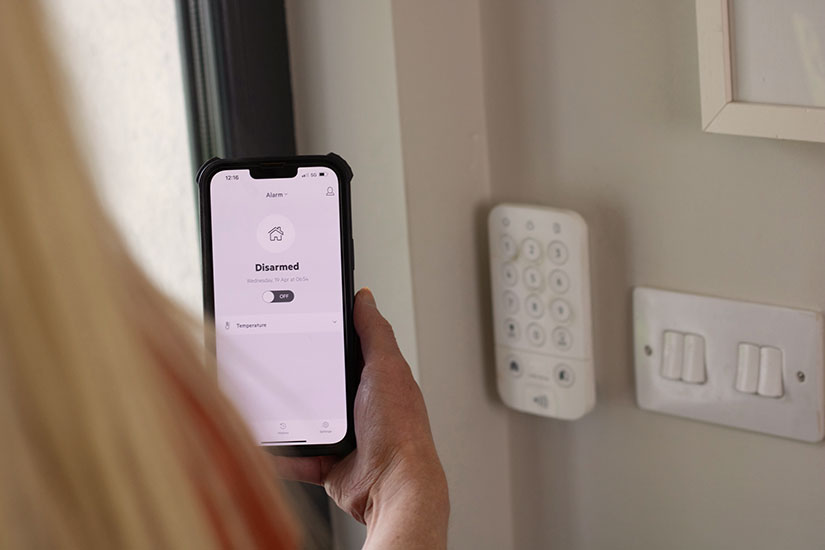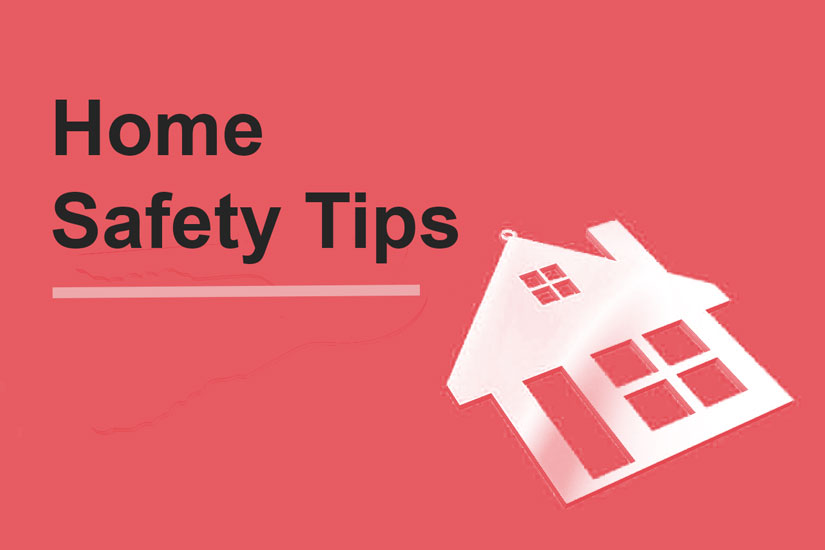
Monitored vs self-monitored house alarm system
A monitored house alarm system and a self-monitored house alarm system are two different options to households looking to improve their home security.
In this article we will explore the differences between the two and help you understand the options available to you.
Monitored house alarm system
A monitored house alarm system involves a professional monitoring service that 24/7 remotely watches over your home security. PhoneWatch is one of the leading monitored house alarm system providers in Ireland and offer a range of different monitored services to our customers.
Here is how our monitored house alarm typically works:
- In our starter house alarm pack, households receive security sensors, motion detectors, a smoke alarm and more as standard.
- When an alarm is triggered, such as a motion sensor, a door/window sensor, smoke detector sensing smoke, then the system sends a signal to our central monitoring station.
- Our trained alarm receiving center operator at the monitoring station receive the signal and contact the household in first instance.
- If our operators determine that there is a threat or an emergency, they take appropriate action, such as notifying the police or fire department.
- The monitoring service may also notify designated emergency contacts if we cannot reach the homeowner.

Benefits of a monitored house alarm
- Professional monitoring ensures a quick response to emergencies, even when you're unable to respond or away from home.
- Households have peace of mind that they are being protected when they are at home, on holidays or just away.
- Our monitoring service can contact emergency services on your behalf, potentially saving valuable time during critical situations.
- If there are any issues with your equipment such as batteries out of date it is often quickly identified while service calls are usually included as part of the service.
- Our monitoring services provides additional features as standard such as a smoke detector meaning you are not just protected from burglaries but also fire.
- Many insurance companies will offer a discount on your house insurance if you have a house alarm installed in your home.
- Our monitored alarm pack includes a large bellbox which is fixed on the outside of a home which lets people know the house is protected by PhoneWatch. Knowing the house has a monitored alarm usually acts a deterrent for burglars.
Disadvantages of a monitored house alarm
- There is a monthly monitoring fee to help keep your home secure which might be a barrier if you do not have the budget.
- Sometimes false alarms can be generated if your alarm is triggered by a pet of you forget to disarm an alarm.
- You still need to manage aspects of your alarm. The alarm can be armed and disarmed at will provided you have the necessary passcode. While having control of the alarm is a positive, it can still leave you open to human error and forgetting to set the alarm giving you a false sense of security. If you forget to arm your alarm while leaving the home, then your home will not be monitored.
Self-monitored house alarm system
A self-monitored house alarm system allows you to manage your home security without involving a professional monitoring service like PhoneWatch. Here's how it typically works:
- You will need to research the self-monitoring home solutions available to you such as security sensors, security cameras, smoke alarms etc.
- You will be responsible for managing maintenance of these self-monitoring devices to ensure they are working.
- When an alarm is triggered, the system alerts you directly and you will need to be immediately available to review the issue.
- It's up to you to assess the situation and decide on the appropriate action, such as contacting the authorities or checking the security cameras remotely.
- If further action is required, then you will need to notify the appropriate authorities such as the gardai in case of attempted burglary or fire services in case of fire.
Benefits of a self-monitored house alarm
- Self-monitoring systems are often more cost-effective since there are no monthly monitoring fees.
- You have direct control over managing alerts and deciding how to respond.
- Some self-monitored systems offer remote access to security cameras and other smart home features.
Disadvantages of a self-monitored house alarm
- The effectiveness of a self-monitored system relies on your ability to respond promptly to alerts, which may not always be possible.
- You are responsible for contacting emergency services, which can introduce delays if you are unable to do so promptly.
- If there is a burglary and it happens quickly while you are at home, then the burglar may prevent you from contacting the authorities.
- You may have less peace of mind as it will be quiet distressing to witness a burglary or fire at your own home and be solely responsible to respond.
- Alarm notifications may put you on edge particularly on times when you are on holidays and most vulnerable to a burglary. This could prevent you from being able to relax knowing the issue will not be resolved without your attention.
Conclusion
Ultimately, the choice between a monitored house alarm and a self-monitored house alarm depends on your preferences, budget, and the level of security you desire. One of our blogs covers more detailed information on the benefits of monitored home alarm systems. If you prefer immediate response, more peace of mind, and professional oversight, a monitored system may be the better option. If this is on interest to you, then please review of house alarm pack or request a free personalised quote.
Frequently Asked Questions
Q: What is considered a monitored alarm?
A: A monitored alarm is a security system that sends alerts to a monitoring center or directly to the user when triggered
Q: Are monitored alarms worth it?
A: Yes, monitored alarms provide enhanced security and peace of mind by ensuring a prompt response to emergencies
Q: What is the difference between a monitored alarm and self-monitored alarm?
A: A monitored alarm sends alerts to a professional monitoring center for immediate response, while a self-monitored alarm notifies the user directly, who must then take action
Q: Does having a monitored alarm reduce insurance?
A: Yes, having a monitored alarm can reduce your insurance premiums. Learn more in our insurance article



